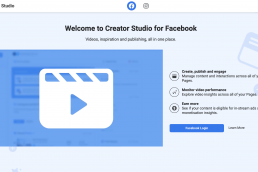Social media campaigns are never as simple as they appear. That’s because any marketing strategy involves an extensive planning process.
You might want to launch a social media campaign for various reasons. For example, it could be to publicise a new product or feature. Or perhaps you want to capitalise on a holiday.
Whatever the reason, you’ll need to prepare and strategise ahead of time to ensure the success of your campaign. That is why you want a data-driven marketing plan to help guide the course of your social media campaigns to meet your goals.
However, if you don’t know where to begin, the work involved in organising and executing these campaigns can seem overwhelming.
The good news is that this article can assist in simplifying the process.

Understand the Basics of Your Campaign
Assume your intended social media campaign has been approved, and you can now begin.
Nice! But are you at a loss about where to begin?
Before you start publishing or posting, you must determine the campaign’s goal. You can work with your team to plan the details of the campaign. Here, you can write a mission statement, detailed objectives, and a schedule for your campaign.
Here are some preparatory must-do actions and crucial questions to ask before launching your campaign. You can use these methods no matter what product you’re attempting to promote.

Define your target audience
Before you begin your campaign, you should identify whom you want to reach.
For example, your target audience could be new clients who have never heard of your company. They could also be previous or present customers.
In any case, it should not be anybody or everything. Because the target audience heavily influences your campaign strategy and plan.
As a result, efforts that target a specific group are more likely to resonate with buyers than one-size-fits-all campaigns.
Establish specific goals
Setting precise objectives for your social media campaigns is critical to their success. For example, goals for your campaign could include growing interaction, raising revenue from product sales, or increasing brand exposure.
By linking your campaigns to analytics and KPIs, you can determine whether or not your campaign was successful. Monitoring the data during your campaigns also helps you to make improvements and interventions if your performance becomes stagnant.

Choose a social media campaign theme
The most significant advantage of developing a social media strategy is that it allows creative freedom. Businesses today have a variety of marketing campaign themes and ideas to choose from.
The sort of campaign you choose will decide the message you convey and the creatives required to design that message. Product launches, influencer marketing, and seasonal promotions are only a few examples of possible campaign types.
Decide a time frame for your campaign
It is critical to set a time frame for your social media strategy.
To begin, you can:
- Set a start and end date for your campaign;
- Set deadlines for specific goals and milestones;
- Set reasonable deliverables estimates depending on your team’s timeline.
Another advantage of selecting a time limit is that it allows you to manage your resources better. While there is no right or wrong answer to how long a campaign should run, the tighter your timetable and timeline, the better. Also, when choosing a time frame for your campaign, make it as flexible as possible.

Choose the Appropriate Social Media Channels
Your social media marketing plan most likely encompasses numerous channels.
It is not uncommon to see brands executing marketing campaigns across multiple platforms simultaneously, such as Instagram, Facebook, or Twitter. However, you may not have the same social media presence as most of these large brands across several platforms.
In any case, keep in mind that your social media marketing plan will vary depending on the platform. That is because what works on Instagram will probably not function on Facebook or Pinterest.
After deciding on the best social media outlets for your campaign, you must develop a promotional strategy.
Decide how to promote on each platform
You must now decide what type of material you will need for each social media platform. You could, for example, make a short video for Instagram or Facebook. At the same time, you can decide to produce images for Twitter or Pinterest.
To make this plan work, you must first grasp the purpose of each social media platform and how to communicate with your audience.

Create a Content Calendar for Your Social Media Campaign
The next step in your campaign strategy is to create a content calendar.
It would help to decide which days of the week and when you will upload content to your social media accounts. And the messaging and creative material you’ll employ to boost engagement.
You might also utilise a specialised publishing tool to plan out your content calendar and schedule your posts ahead of time. This utility keeps you from having to upload content in real-time. As an added benefit, you will have more time to maintain client connections and respond to customers.
Optimise your content for each social media platform
When it comes to optimisation, each social media platform is unique.
Caption length, hashtags, publication schedule and frequency, calls-to-action, and image sizes could all be optimised.
Handling these activities alone can be difficult; thus, if you need any help for further optimising your social media accounts to get even more results, you can use our professional social media management services.

Access Your Social Media Campaign Performance
Analysing your data will help you determine whether or not your social media marketing strategy was successful. Furthermore, because numbers are objective, reporting and showcasing your successes to stakeholders, clients, or teammates will be more straightforward.
Remember that reporting and analysis should be ongoing and not only at the end of your marketing push. Pay attention to high-level engagement data that tells you how much your target audience connects with your campaign.
You might also access specific social media stats, such as your best-performing post and click-through rate, to get an idea of what works and doesn’t.
Bottom line
It would be best if you had a plan and strategy to launch an effective social media marketing campaign. If you’re having difficulty coming up with fresh ideas for your campaigns, you can tap into the power of social listening.
Alternatively, you might do a competitive analysis to discover what your competitors are doing in terms of campaigns and gather ideas. You could also get ideas from successful campaigns you’ve seen elsewhere.
Kamran Shukurlu
Kamran is a T-shaped eCommerce Digital Marketer and Content Strategist with 9+ years of experience in 30+ industries. A few of the companies that benefited from his services: Leo Burnett, Translated, Airbnb, Samsung, Huawei, etc.
Related Posts
July 18, 2024
Social SEO: Optimising Your Content for Discovery
July 8, 2024
The Comeback of Long-Form Content
June 5, 2024
How to Import Sounds From TikTok to Instagram?
May 21, 2024
9 TikTok Challenges List And TikTok Trends
February 24, 2024
Pinterest Account Suspended Appeal – How To Do It Right?
February 3, 2024
How to Make Money With Instagram Theme Pages In 2024
January 11, 2024
Resort And Hotel Digital Marketing Campaign Strategy And Ideas
December 26, 2023
New Year and Christmas Interactive Posts and Ideas For Social Media
December 8, 2023
B2B Community Management: Unpopular Opinion To Level Up
November 23, 2023
Feel Good Friday Social Media Posts And Wishes
October 6, 2023
How to Stream Games on TikTok With TikTok Stream Key
September 15, 2023
Creating an Effective Content Calendar
September 15, 2023
10 Tips to Optimize Facebook Page for SEO and Reach More People
September 4, 2023
How to Go Live on TikTok Without 1000 Followers In 2023
August 14, 2023
How Much Does IG Models Make And How To Become One
June 26, 2023
How To Get Verified On LinkedIn In 2023?
March 25, 2023
How to Create a Facebook Group Funnel to Drive Leads
March 19, 2023
How to Mass Archive Instagram Posts in 2023 + Unarchive
March 13, 2023
8 Social Media Community Building Strategies For 2023
February 18, 2023
How To Make Money On Instagram With 500 Followers
February 18, 2023
How to Go Live on LinkedIn – Best Practices and Guides
February 8, 2023
Instagram Guides Examples and Ways to Use Them
February 8, 2023
How to Schedule Instagram Posts Without Third-party App
January 22, 2023
Growth Hacking for Instagram to Get More Followers in 2023
January 20, 2023
How To Upload GIFs on Twitter in 2023
January 3, 2023
What To Do When you go Viral on Instagram
December 23, 2022
How to Spy on Competitors’ Facebook Ads For Free (6 Tools)
December 22, 2022
How to Get More Views on LinkedIn – 10 Tips to Reach More People
December 19, 2022
What To Do Before and After Posting On Instagram
December 14, 2022
How Instagram Search Works: A Comprehensive Guide In 2022
November 15, 2022
Twitter Spaces Analytics: Ultimate Guide to Your Space Insights
November 13, 2022
20 Viral Instagram Reels Hooks To Keep People Watching
October 29, 2022
How To Speed Up Existing Video For Instagram Reels – FOR FREE
October 16, 2022
How to Use Twitter Advanced Search Tool on Mobile
October 16, 2022
7 Instagram Mistakes to Avoid & Here’s Why
October 9, 2022
10 Proven Instagram Story Ideas to Engage Your Audience
September 23, 2022
Social Media Shopping in 2022: What it Promises for Small Businesses
September 20, 2022
Tips to Create a Successful Hashtag Campaign
September 8, 2022
The Top 9 Instagram Tools That Can Boost Your SME’s Visibility
August 28, 2022
How to Regram: The Art of Reposting on Instagram
August 11, 2022
A Checklist to Launch a Rebrand on Social Media
August 7, 2022
The Whys and Hows of Facebook Video Ads
August 7, 2022
How To Write Good Instagram Captions
May 4, 2022
10 Social Media Myths To Unlearn in 2022
April 11, 2022
Twitter Analytics Tools to Level Up Your Game
March 14, 2022
Monthly Social Media Updates And News – February 2022
February 23, 2022
Social Media in the times of COVID-19: Adapting to a New Normal
February 14, 2022
Monthly Social Media Updates And News – January 2022
February 2, 2022
Optimise Google My Business: An In-depth Guide to Get it Right
January 19, 2022
9 Tips to Sell on Pinterest: Your Branding And ROI Booster
January 12, 2022
Monthly Social Media Updates And News – December 2021
December 10, 2021
Risks And Dangers of Buying Instagram Followers
December 8, 2021
Monthly Social Media Updates And News – November 2021
November 2, 2021
Monthly Social Media Updates And News – October 2021
October 14, 2021
Monthly Social Media Updates And News – September 2021
October 1, 2021
Brief 18 Twitter Hacks You’ll Wish You Knew Earlier
September 23, 2021
Instagram Pre-Launch Strategy 2022: A Proper Guide for Your Product
September 14, 2021
Monthly Social Media Updates And News – August 2021
September 8, 2021
15 Social Media Post Types to Keep Your Content Engaging
September 8, 2021
How to Sell on Facebook Shops and Facebook Marketplace in 2023
August 16, 2021
Driving Traffic From Twitter Straight to Your Blog in 2022
August 13, 2021
The ABCs of Using LinkedIn Videos Like a Pro in 2022
August 11, 2021
Monthly Social Media Updates And News – July 2021
July 29, 2021
Spiral Up Your Engagements With Instagram Carousels
July 17, 2021
Monthly Social Media Updates And News – May 2021
July 5, 2021
How to Mass Delete Instagram Posts in 2022?
April 29, 2021
Monthly Social Media Updates And News: March 2021
April 17, 2021
Latest Social Media Updates And News – 2022
April 17, 2021
Monthly Social Media Updates And News: February 2021
March 31, 2021
How to Choose the Best Competitor Analysis Framework
March 1, 2021
Monthly Social Media Updates And News: January 2021
February 21, 2021
How To Get Unlimited Free Leads For Any Business In UK
February 20, 2021
How to Find Brands That Collaborate With Small Influencers
February 4, 2021
Web Content Development 101 For Small Businesses
January 28, 2021
Monthly Social Media Updates and News: December 2020
January 13, 2021
How To Add A Link To Instagram Story Without 10K Followers
December 14, 2020
6 Testimonial Examples And How To Ask For Them
December 11, 2020
IG Line Break Generator: No Need For it Anymore? (2022)
December 2, 2020
Monthly Social Media News And Updates: November 2020
April 22, 2020
Social media marketing for recruitment agencies
December 23, 2019
How to market your podcast on social media
October 31, 2019
Account-based mindset vs. lead-based marketing
October 22, 2019
The benefits of starting your own podcast
October 14, 2019
What’s the LinkedIn Social Selling Index? (and why you need it)
October 8, 2019
7 ideas to network effectively – and locally
September 26, 2019
5 tips from an influencer to unlock your potential
September 16, 2019
How to create an effective Facebook ad: 7 easy tips
September 7, 2019
3 inspiring marketing campaigns with awesome results
September 1, 2019
Everything you need to know about lead generation
August 28, 2019
Can my brand benefit from a social media calendar?
August 13, 2019
3 basics of KPIs: what to measure and why?
August 9, 2019
5 Story Highlight ideas to totally revamp your Instagram
July 31, 2019
The good, the bad, and the funnel
July 24, 2019
The basics of content marketing – why you need it
July 18, 2019
Primark – how the brand uses social media
July 10, 2019
The evolution of Twitter for social media marketing
July 7, 2019
Discover 3 benefits of WhatsApp Business!
June 28, 2019
How Lululemon uses social media: 5 ideas
June 24, 2019
New Instagram @shop and how it works
June 17, 2019
5 foolproof tools to create a buyer persona
May 29, 2019
3 burning social media trends to watch out for
May 23, 2019
7 ingredients every entrepreneur needs to have
May 13, 2019
5 Social Media Tools: Marketing Made Easy!
April 15, 2019
Wanna kickstart your landing page? 3 reliable tools!
March 26, 2019
3 video marketing tricks to boost engagement
February 26, 2019
A five-star femmepreneur – meet Gretta van Riel!
February 15, 2019
Why Twitter is essential – revamp your marketing strategy today!
February 7, 2019
SEO for Newbies: The Basics
January 22, 2019
4 amazing inbound marketing tools to try now!
January 16, 2019
Everything about ecommerce, decoded!
January 11, 2019
Influencer marketing: why is it crucial?
January 7, 2019
How social media is changing your brain
January 2, 2019
Choosing a signature colour for your brand
December 28, 2018
Advanced Instagram for startups: an effective step-by-step guide
December 1, 2018
Instagram from Scratch!
November 22, 2018
Elevate your Brand with these 4 New Linkedin Tools
January 15, 2018
5 Ways Social Media Can Help Your Small Business In 2018
September 25, 2017
7 indispensable social media tools for small businesses
September 1, 2017
September 2017: Social Media Roundup
February 2, 2017
Our new promotional video
January 17, 2017
Why your business needs to be active on social media
November 3, 2016
The Top 10 Small Fashion Brands on Instagram
September 29, 2016
Hоw Tо Grоw Yоur Smаll Business Uѕing Social Media
September 26, 2016
How can I use social media for customer service?
September 20, 2016














































































































































































